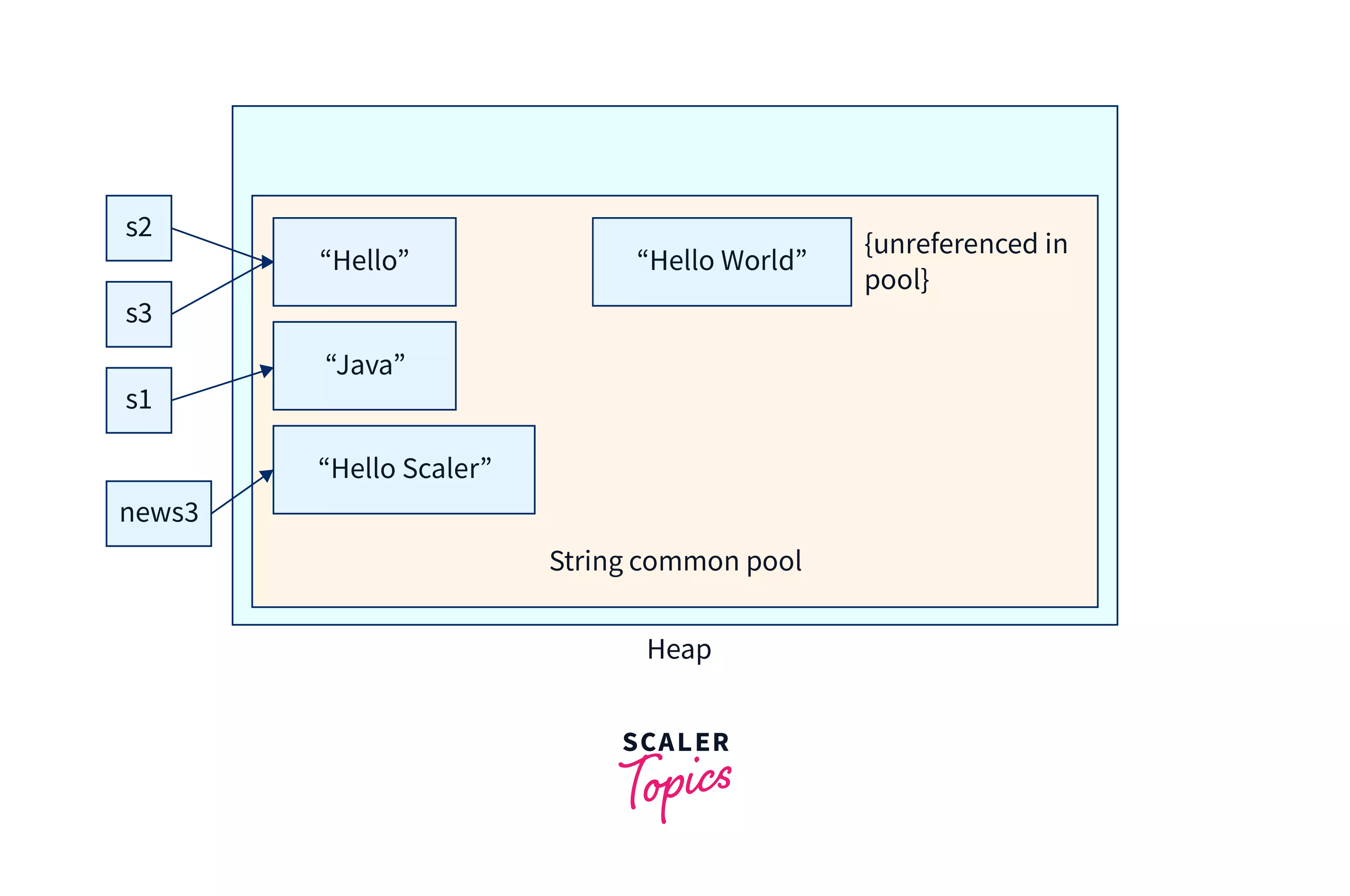Why Are Strings Immutable in Java? Discovering the Layout Decisions
Why Are Strings Immutable in Java? Discovering the Layout Decisions
Blog Article
What Is Unalterable Strings and Just How It Functions
In the world of programs, recognizing the principle of immutable strings is vital for developing durable and protected applications. Unalterable strings describe strings that can not be altered after they are created, making sure information integrity and predictability within the code. This essential concept plays a crucial function in different shows languages and uses an unique method to taking care of data. By checking out the ins and outs of how immutable strings function, one can reveal a world of benefits and opportunities that can boost the top quality and performance of software advancement.
The Fundamentals of Unalterable Strings
Immutable strings, as a basic principle in programs, are character sequences that can not be altered once they are produced. This means that once a string is appointed a worth, that worth can not be modified. In languages like Python and Java, strings are immutable items, leading to numerous ramifications in terms of memory management and information honesty.
Among the essential benefits of immutable strings is that they offer a feeling of safety and security in data manipulation. Considering that the content of an immutable string can not be changed, it guarantees that the original data remains undamaged, minimizing the threat of unplanned changes during program implementation (Why are strings immutable in Java?). This residential or commercial property likewise streamlines debugging procedures, as designers can trust that when a string is specified, its value will certainly not be accidentally modified
Furthermore, immutable strings promote effective memory usage. When a brand-new string is produced based upon an existing one, instead of changing the original string, the new value is stored individually. This approach improves performance by lowering memory fragmentation and simplifying memory allowance procedures. In general, recognizing the basics of unalterable strings is vital for mastering programs concepts and optimizing code performance.
Benefits of Immutable Strings
Structure upon the security and effectiveness benefits of immutable strings, their advantages include enhancing code dependability and streamlining concurrent programs jobs. By being unalterable, strings can not be customized after creation, which eliminates the threat of unplanned modifications in the information they keep. This integral immutability ensures that once a string is developed, its worth continues to be constant throughout the program's implementation, lowering the chances of pests triggered by unexpected changes.
Furthermore, unalterable strings add to code reliability by making it easier to reason concerning the state of a program. Since strings can not be transformed, designers can trust that a string will always hold the same worth, simplifying debugging and upkeep initiatives. This predictability brings about a lot more reputable and steady codebases.

Implementation in Shows Languages
Within different shows languages, the unification of unalterable strings is a basic element that impacts how data is dealt with and controlled within code structures. The implementation of immutable strings differs throughout various programs languages, with each language supplying its own mechanisms to sustain this principle.

On the other hand, languages like C and C++ do not site here have built-in support for immutable strings. Developers in these languages must manually carry out immutability by implementing rules within their code to stop straight modifications to string items.
Ideal Practices for Working With Unalterable Strings
When managing immutable strings in programming languages like Java and Python, sticking to finest techniques guarantees secure and efficient information control. One of the essential best methods is to use StringBuilder or StringBuffer rather than straight manipulating strings, specifically when dealing with considerable concatenation procedures. These courses supply mutable alternatives for string manipulation, aiding to avoid unnecessary memory allotments and boosting performance.
Additionally, when working with sensitive data such as passwords or API keys, it is important to avoid saving them as plain message in immutable strings. Utilizing protected storage space mechanisms like char varieties or specialized libraries for dealing with delicate details aids reduce security dangers linked with immutable strings.
Real-world Applications and Examples
Checking out practical applications of immutable strings in various sectors exposes their considerable effect on data integrity and system reliability. use this link In the health care industry, immutable strings play an important role in making certain the safety and security and discretion of person data. By avoiding unapproved alterations to delicate info such as medical documents and prescriptions, immutable strings assist maintain compliance with stringent personal privacy policies like HIPAA.
Banks likewise gain from the immutable nature of strings to enhance the safety of client information and transaction documents. Immutable strings assist protect against fraud and unapproved modifications to financial info, offering a durable protection against cyber hazards and making certain the trust fund and self-confidence of customers.

Conclusion
Best techniques for working with immutable strings include preventing straight adjustments and utilizing techniques that return brand-new string things. Real-world applications of immutable strings consist of data security, caching, and string manipulation jobs.
Immutable strings refer to strings that can not be altered after they are created, ensuring information stability and predictability within the code. When a brand-new string is created based on an existing one, instead than modifying the original string, the brand-new value is stored separately.In languages like Java and Python, strings are immutable by default, suggesting that as soon as a string item is produced, its value can not be altered - Why are strings immutable in Java?. Ideal methods for functioning with immutable strings include staying clear of straight modifications and utilizing techniques that return brand-new string items. Real-world applications of unalterable strings include information security, caching, and string manipulation tasks
Report this page